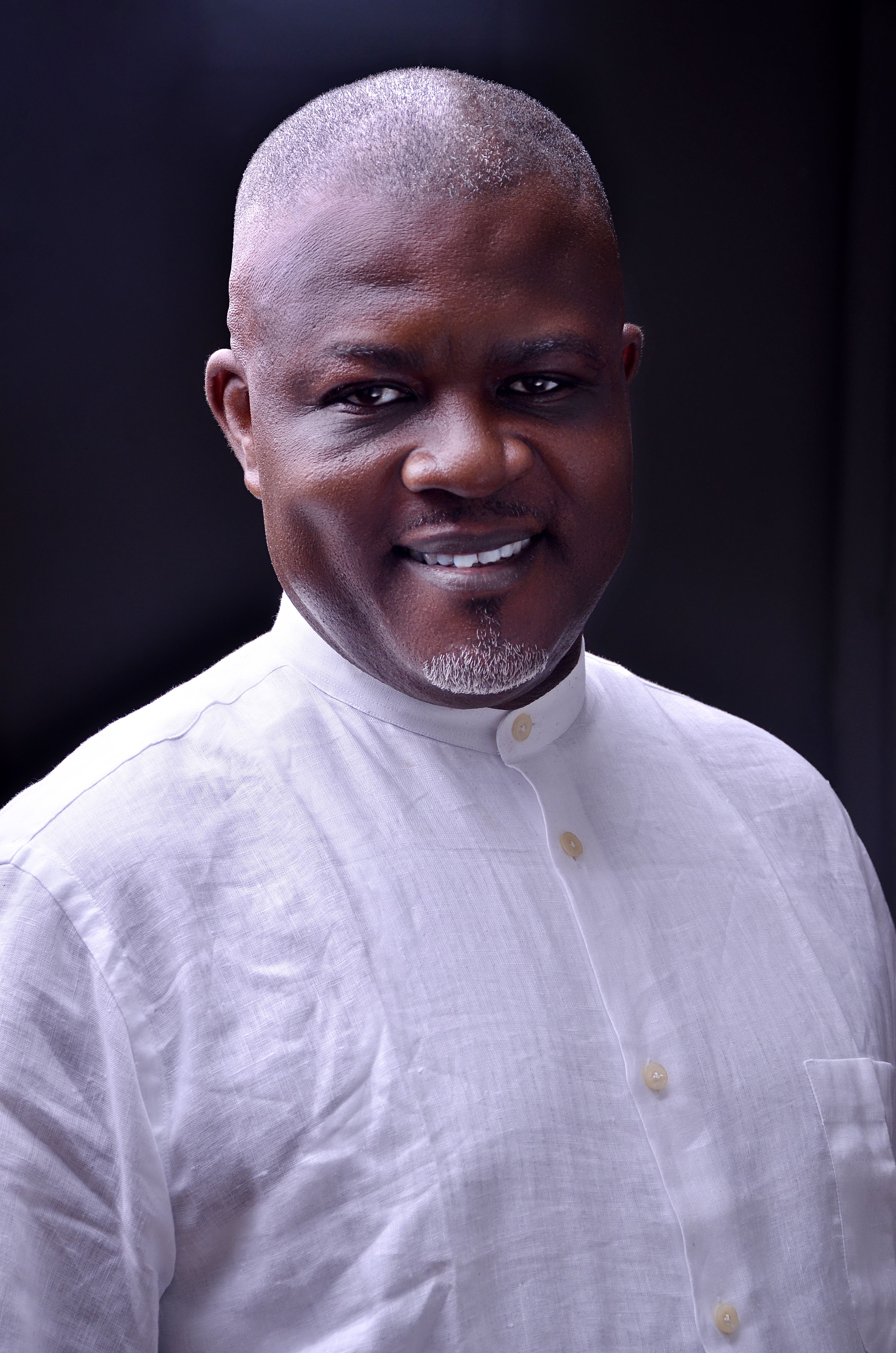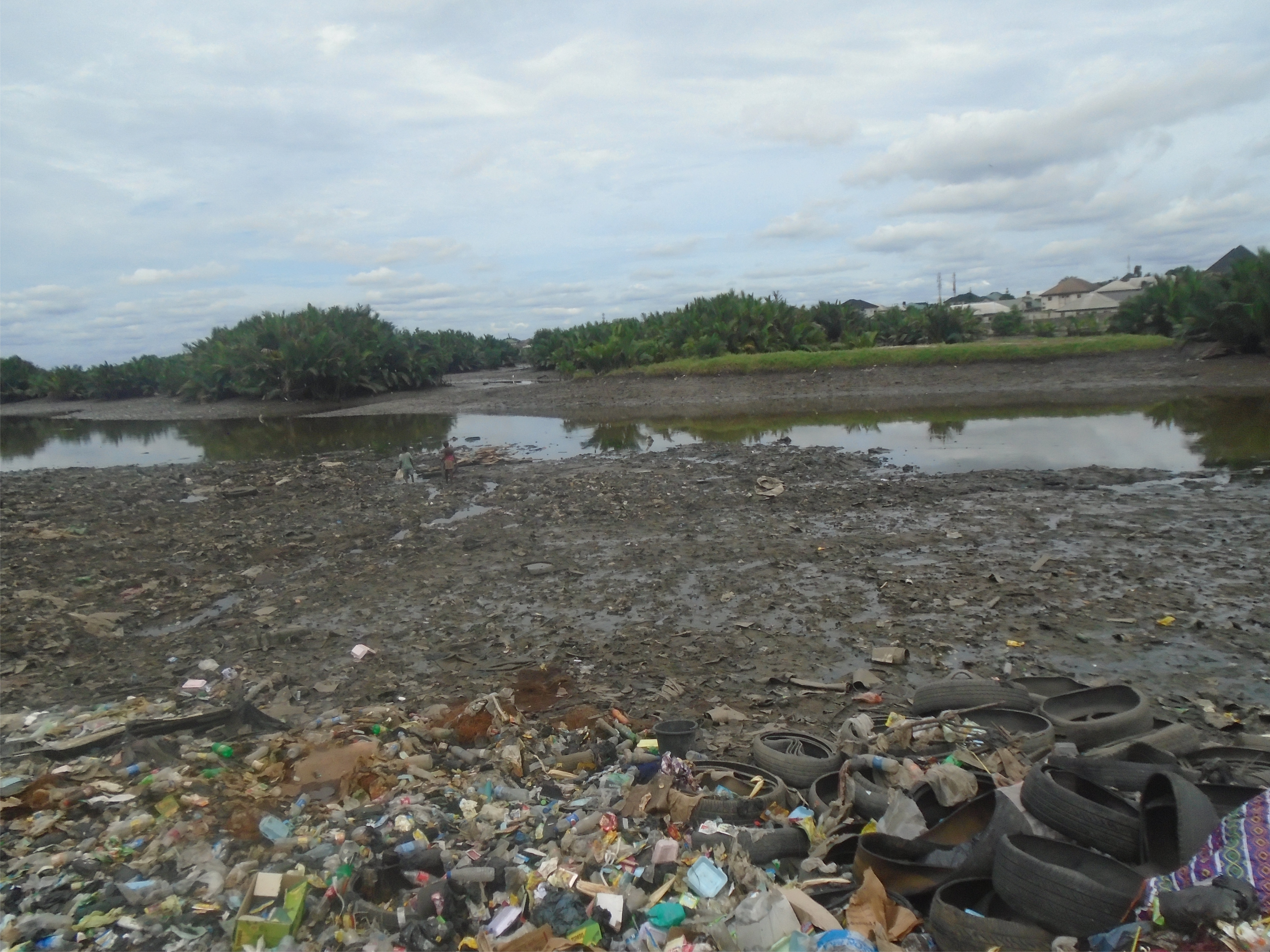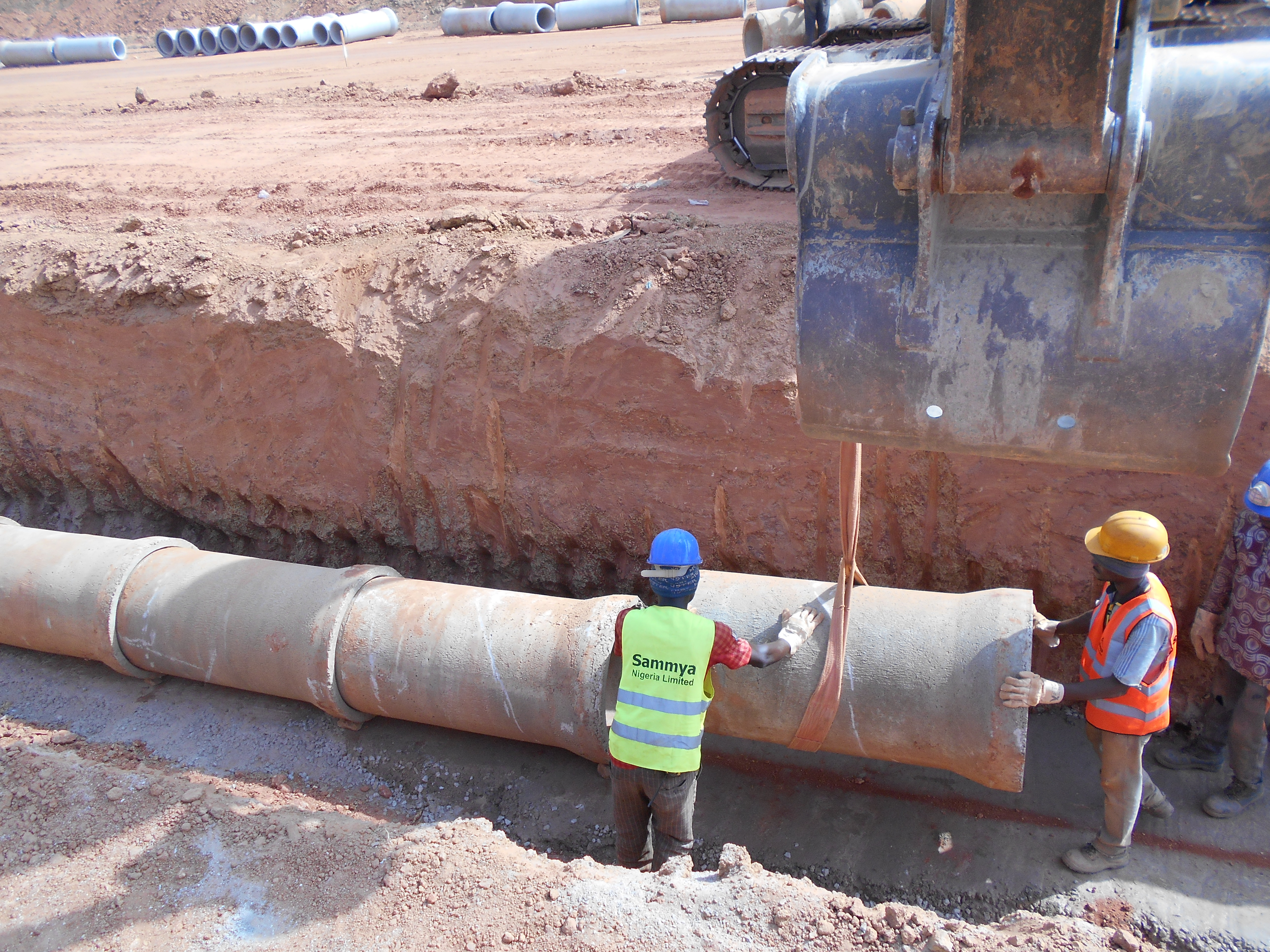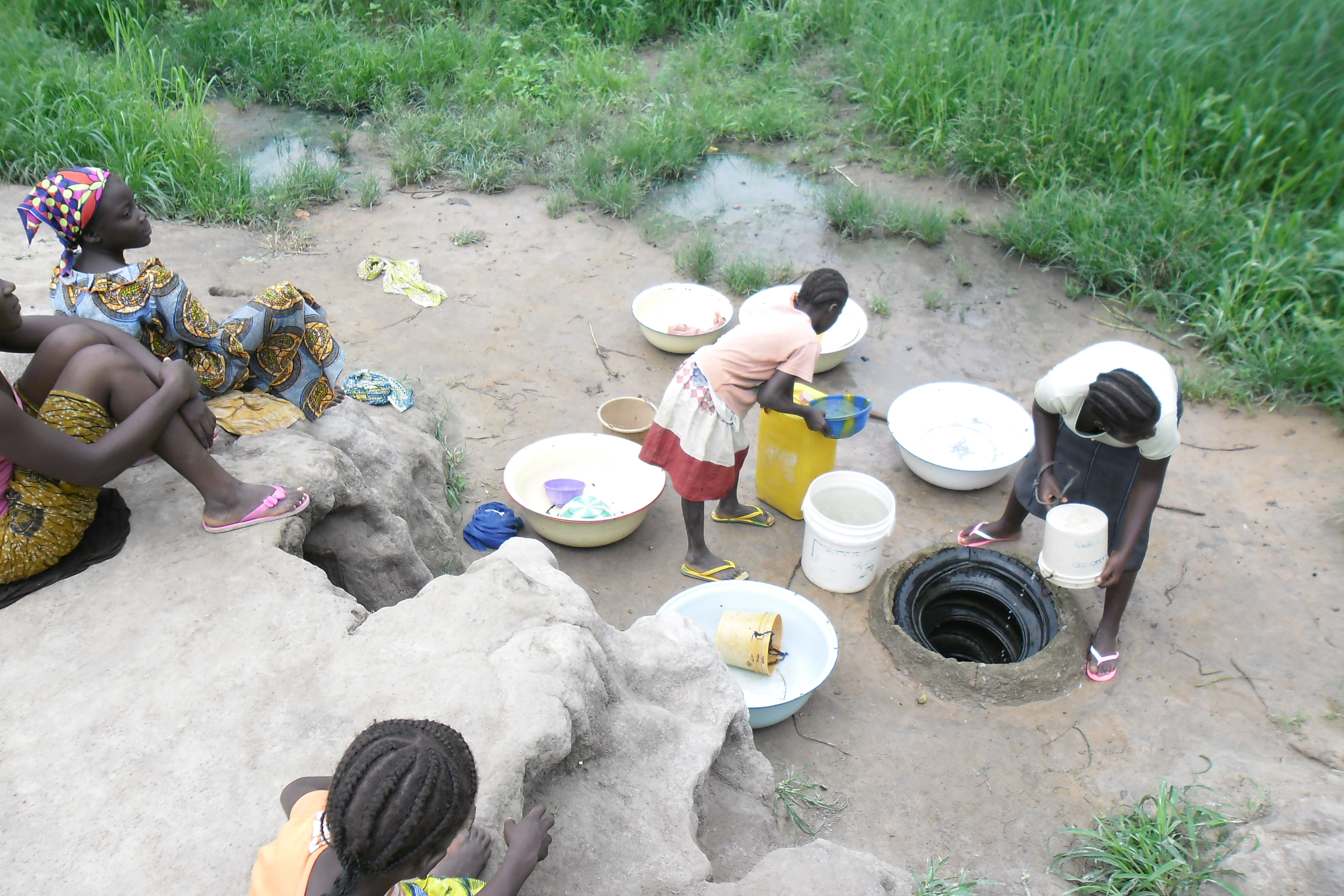Current Student Profile: Olumide Omolade from Nigeria

Olumide Omolade is one member—and perhaps a particularly notable member—of a growing international cohort of water professionals. They are well trained in cutting-edge techniques of monitoring and even quality improvement; but even more, they are engaged on multiple levels, understanding both the science and policy of water quality.
Olumide grew up in southwest Nigeria, near the coast. He was curious from a young age, and decided to pursue science in school. This led him to a Bachelor’s degree in biochemistry, with a particular interest in toxicology. At that point, he was working for a cement company, doing what he described as a very ‘basic’ job. And yet, he saw the water around the houses they were building, the water that accumulated in the local quarry, and the effluents being discharged into local water bodies. He felt compelled to test the water’s quality; ‘no one told [me]’, he explained. ‘It was natural… [he] just picked up water’.

Diobu water front in Port Harcout, Rivers State, Nigeria. Solid waste is a significant problem in many parts of Nigeria. Image by Berekara U. Pius. Licensed by Creative Commons Attribution-Share Alike 4.0 International.
His continued studies took him to the Netherlands, where he studied sustainability science, policy and society. And, most importantly us, he is a GEMS/Water CDC alum, having earned a Postgraduate Diploma and an MSc at University College Cork, via the CDC. Two elements have been present throughout his professional studies: an interest in groundwater and a keen awareness of the importance of policy.
His experience working with GEMS/Water CDC really opened his eyes to the importance of groundwater. He cites a groundwater course with Dr. John Weatherill as a key moment, the beginning of his ‘very extensive education in saltwater intrusion’. This was key to his intellectual trajectory, as his home country of Nigeria is highly dependent on groundwater. ‘They lack surface water as a source of drinking water in Nigeria, so everyone has their own borehole’. However, the groundwater there is quite salty, and there is saltwater intrusion in wells right across the basin, from Nigeria into neighbouring Cameroon. Inundation, subsidence, and rising sea levels exacerbate the problem.

Industrial development along the water in Bonny, southeast Nigeria. Image by ---=XEON=---. Licensed by Creative Commons Attribution 3.0 Unported License.
Indeed, Olumide’s enduring interest in groundwater has led him to a PhD programme, which has recently begun at Nigeria’s Federal University of Petroleum Resources, in Effurun. There, he will focus on climate change scenarios with integrated sustainability assessments, blended with study of saltwater intrusion. And, perhaps most excitingly, he wants to combine science and policy.
Policy is, of course, the other element that has long been present in Olumide’s work. He has long sought to understand ‘the relationship, the interface, between policy and science’. ‘Primarily we should look at policy’, he says, ‘policy drives water quality, efficiency, loss and all that. We don’t have a very good water policy in Africa’. Policy, in fact, is behind many of the water quality problems currently facing Nigeria, and many other places besides.
As in so many other places, pollution is a major problem. Olumide explains that there is a lack of good wastewater treatment facilities and there are effluents from both domestic and industrial sources. These have significant effects all the local waterbodies, including the groundwater. Glyphosphate, a pesticide known popularly as Monsanto’s Roundup, is ‘used indiscriminately’ in Nigeria, and is making its way into groundwater in Europe; given that, Olumide believes it is likely doing the same in Nigeria.

Laying of storm water pipe by Nigerian workers. As Olumide explains, work continues on the development of Nigerian water infrastructure. Image by Sammya Nig Ltd. Licensed by Creative Commons Attribution-Share Alike 4.0 International.
More broadly, the issue is development, which is radically—and rapidly—remaking waterscapes. Nigeria is growing quickly and in many cases that growth is occurring along the waterfront and in wetlands. Wetlands are being backfilled to allow for development, but this is merely filling in flood plains. The waters remain, and they must go somewhere. There are attempts at wetland conservation so that some areas can remain to absorb the water, but, overall, the ecosystems in the area are being rapidly destroyed. Land subsidence and sand mining only contribute to the problem. Reflecting on the changes to the lands and waters since his childhood, Olumide noted that ‘It looks more beautiful now, but it’s not about being beautiful. The moment I have the knowledge [of science and ecology], I see that the ecosystem is being damaged… the development is good but it comes at a cost’.
What should be done, then? For Olumide, with his dual focus on science and policy, the answer is both. Legislation must change: punishment, deterrence laws to stop sand mining and indiscriminate dumping; greater enforcement to deter pollution; and more education so that people better understand the importance of ecosystems. He believes it should be compulsory for children to receive environmental education, and he hopes to someday work with the education ministry and put such lessons into the country’s curriculum. He is also the lead coordinator of Water Corridor International, an NGO involved in sustainable water quality.

Caption: Young girls fetching water at the stream. Much water infrastructure in Nigeria remains manual in nature. Image by Paul Kaigama. Licensed by Creative Commons Attribution-Share Alike 4.0 International.
He continues to research groundwater and its intersections with policy. In his PhD, he hopes to consider European laws, such as the Water Framework Directive, and compare them with Nigerian water laws, and to someday provide the basis for improved water law in Nigeria. Perhaps he may even go into politics himself: ‘As scientists’, he says, ‘we need to pursue policy and go into water governance. A lot people are oblivious. Politicians and businesses don’t know and don’t care, they don’t see how important water quality is’. We at GEMS/Water CDC could not agree more, and we could not be more impressed with individuals like Olumide. It is in their hands that the future of water quality rests, and capable hands they are.
UNEP GEMS/Water Capacity Development Centre
UNEP GEMS/Ionad Forbartha Acmhainneachta Uisce
Contact us
Environmental Research Institute, Ellen Hutchins Building, University College Cork
